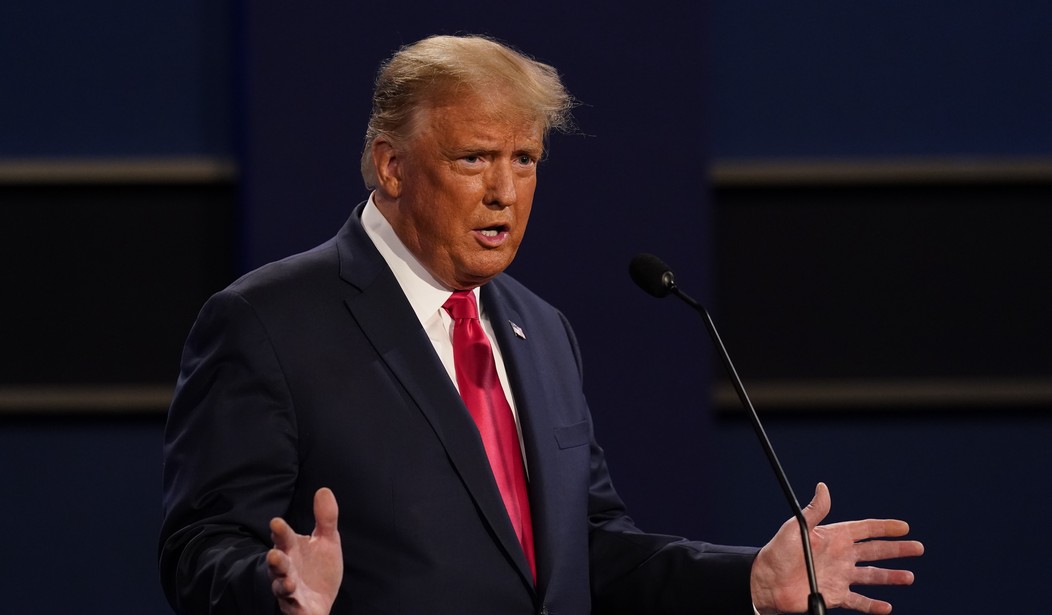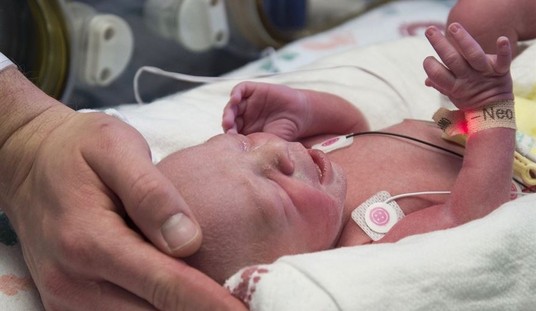Let’s face it. Donald Trump voters should give up and not even bother to vote. Biden has this thing in the bag. He’s winning all the battleground states. He’s got a double-digit lead in some polls. Trump will lose Texas, Florida, and Ohio and he can forget Pennsylvania, Wisconsin, and Michigan.
It will be a slaughter. A landslide of historic proportions. It will be a repudiation of Trumpism and Trumpists now and forever.
Some of us who write about politics for a living live in a state of constant amazement and wonderment at the relentless drumbeat — the almost hysterical insistence — that Biden is far ahead and Trump is toast. At this point — four days before the election — polls become fairly useless because of the constantly changing political landscape. Movements of just a few thousand voters in a few states could be the difference. That’s impossible to measure in a snapshot poll.
So a media campaign designed to dishearten and dispirit Trump supporters should be ignored. Instead, there are intangibles that, in a close race, could spell the difference between victory or defeat for both candidates.
One of those big intangibles is the so-called “shy Trump voter.” There’s no doubt they exist. But pollsters dismiss their impact as being inconsequential.
But what if they’re not? What if they’re difference-makers? Two California pollsters believe there are a lot more shy Trump voters out there than anyone is saying. And they give the reasons why they think that’s true.
In 2016, pollsters Arie Kapteyn and Robert Cahaly saw Trump rising. In 2020, they see polls again underestimating his support.
For Cahaly, those votes are likely to make the difference again. “There’s a lot of hidden Trump votes out there,” he says. “Will Biden win the popular vote? Probably. I’m not even debating that. But I think Trump is likely to have an Electoral College victory.”
As an illustration, Kapteyn described what his team at USC sees in its polls. Beyond simply asking voters whether they support Biden or Trump, USC asks a “social-circle” question—“Who do you think your friends and neighbors will vote for?”—which some researchers believe makes it easier for people to share their true opinions without fear of being judged for their views.
Poll after poll has shown us that a majority of people believe Trump will win — even if they say they’re voting for Biden. “Oh, my neighbors are all supporting Trump, but not me.” It’s an electoral phenomenon that could only happen in contests involving Trump.
But do these pollsters mean to say that real Trump voters aren’t being honest with pollsters?
“We actually get a 10-point lead, nationally, for Biden over Trump” when asking voters who they personally plan to support, says Kapteyn. “But if you look at the ‘social-circle’ question, Biden only gets like a 5- or 6-point lead. … In general—and certainly on the phone—people may still be a little hesitant to say to that they’re Trump voters.”
“We live in a country where people will lie to their accountant, they’ll lie to their doctor, they’ll lie to their priest,” says Cahaly. “And we’re supposed to believe they shed all of that when they get on the telephone with a stranger?”
And don’t look now, but some other key indices are trending Trump’s way. Gallup just released their latest survey on national satisfaction and October’s number of satisfied Americans doubled over September’s number. Trump also has hit the highest job-approval rating of his presidency at 46 percent.
But pollsters assure us that if there was any hidden bias out there, they would have ferreted it out. How can they be so sure?
Polls are undercounting the people who don’t want to give their real opinions. If they had corrected anything, why didn’t they see Ron DeSantis winning in his 2018 race for governor in Florida? They made the exact same mistake with his opponent, Andrew Gillum. [The final RealClearPolitics polling average in that race had Gillum up by 3.6 percentage points. DeSantis won by 0.4 percentage points.] This wasn’t some random state’s race; this was the hottest, meanest—neck-and-neck races for governor and senator in Florida in an off-year election. Every single major player was polling that state. And 100 percent of them got it wrong; we got it right.
Every writer on this website has been telling readers to ignore the polls and vote. That’s excellent advice. Because no matter who wins, pollsters are once again going to have to go back to the drawing board and try and figure out how to quantify human nature in a series of ones and zeroes.










Join the conversation as a VIP Member